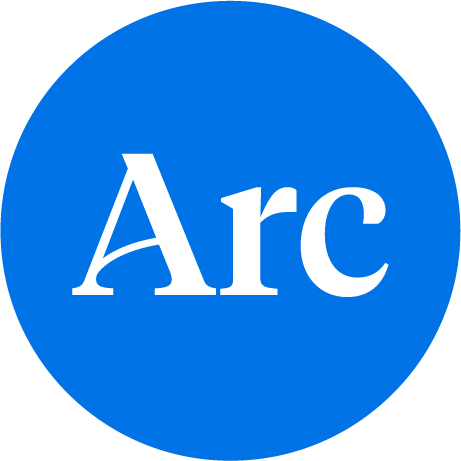
In Vivo Research Scientist - Goodarzi and Jain Labs
About Arc Institute
The Arc Institute is a new scientific institution conducting curiosity-driven basic science and technology development to understand and treat complex human diseases. Headquartered in Palo Alto, California, Arc is an independent research organization founded on the belief that many important research programs will be enabled by new institutional models. Arc operates in partnership with Stanford University, UCSF, and UC Berkeley.
While the prevailing university research model has yielded many tremendous successes, we believe in the importance of institutional experimentation as a way to make progress. These include:
- Funding: Arc fully funds Core Investigators’ (PIs’) research groups, liberating scientists from the typical constraints of project-based external grants.
- Technology: Biomedical research has become increasingly dependent on complex tooling. Arc Technology Centers develop, optimize, and deploy rapidly advancing experimental and computational technologies in collaboration with Core Investigators.
- Support: Arc aims to provide first-class support—operationally, financially, and scientifically—that will enable scientists to pursue long-term high risk, high reward research that can meaningfully advance progress in disease cures, including neurodegeneration, cancer, and immune dysfunction.
- Culture: We believe that culture matters enormously in science and that excellence is difficult to sustain. We aim to create a culture that is focused on scientific curiosity, a deep commitment to truth, broad ambition, and selfless collaboration.
Arc has scaled to nearly 200 people. With $650M+ in committed funding and a state of the art new lab facility in Palo Alto, Arc will continue to grow quickly in the coming years.
About the Position
The Goodarzi and Jain Labs at Arc Institute are jointly seeking a highly motivated and skilled in vivo Research Scientist to help drive forward our collaborative work on cancer biology and oxygen/redox metabolism. This is an exciting opportunity to work across two synergistic labs on mouse models of genetic disease, cancer, and ischemia.
This role offers the chance to lead foundational in vivo work in two dynamic and well-funded labs at the Arc Institute. The candidate will have opportunities to publish, attend conferences, develop novel disease models, and shape shared infrastructure that supports a broad range of cutting-edge projects at the interface of cancer and metabolic biology.
The successful candidate will lead and coordinate in vivo experiments that span multiple biological systems and experimental modalities, including:
- Genetic disease mouse model phenotyping
- Cancer models (PDX handling, GEMMs, orthotopic injections)
- Ischemia models (myocardial infarction, stroke)
- Tissue oxygen measurements and dietary manipulations
You will work closely with both labs to conduct innovative research using complex animal studies with multiple experimental arms and readouts, such as molecular profiling, histology, and imaging, and develop novel approaches to answer fundamental questions in cancer and metabolic biology. You will also mentor junior team members, collaborate with core facilities to advance new surgical techniques, and design optimized in vivo workflows that drive scientific discovery across both labs.
About you
- You’re an organized, hands‑on scientist who loves making experiments happen.
- Rather than waiting for instructions, you’re the person who sees what needs doing and does it – whether that’s refining a surgical technique, planning a breeding strategy or coordinating a multi‑arm study.
- You take pride in meticulous animal work and tidy data, and you enjoy solving the inevitable challenges that arise in vivo.
- You thrive on collaboration: working shoulder‑to‑shoulder with postdocs and research associates energizes you, and you’re comfortable managing complex studies across multiple teams.
- Your curiosity and initiative keep you looking for better ways to do things, and you aren’t afraid to think creatively to overcome obstacles.
- Organization comes naturally; you keep detailed records and juggle parallel projects with ease.
- Above all, you care about advancing discoveries at the interface of cancer and metabolic biology, and you’re ready to help build the in vivo infrastructure that makes those discoveries possible.
In this position, you will
- Design and execute diverse in vivo experiments, from surgery to tissue harvest
- Manage mouse colonies, breeding, genotyping, and experimental logistics
- Coordinate large-scale animal studies across multiple experimental branches
- Collaborate with postdocs, principal scientists, and research associates across both labs
- Interface with institutional cores to learn and apply new in vivo procedures
- Analyze and organize data, contribute to publications, and attend scientific conferences
- Help establish and document in vivo protocols and workflows
Requirements
- PhD in Biological Sciences, or another relevant field. Post-PhD experience is a plus
- Experience designing and executing in vivo experiments
- Strong hands-on experience in mouse colony management, tissue harvest, and in vivo procedures
- Prior surgical experience (any relevant area) and willingness to learn new techniques
- Extremely organized and able to manage multiple parallel projects
- Thrives in a fast-paced, collaborative, and intellectually rigorous environment
- Strong documentation, troubleshooting, and communication skills
- Ability to work some weekends as needed (days off can be swapped for weekdays).
Preferred Qualifications
- Experience coordinating complex in vivo studies with multiple experimental arms
- Familiarity with ischemia or cancer models, including PDXs or GEMMs
- Exposure to readouts such as transcriptomics, metabolomics, imaging, or histology
The base salary range for this position is $121,250 to $150,000. These amounts reflect the range of base salary that the Institute reasonably would expect to pay a new hire or internal candidate for this position. The actual base compensation paid to any individual for this position may vary depending on factors such as experience, market conditions, education/training, skill level, and whether the compensation is internally equitable, and does not include bonuses, commissions, differential pay, other forms of compensation, or benefits. This position is also eligible to receive an annual discretionary bonus, with the amount dependent on individual and institute performance factors.
Apply for this job
*
indicates a required field
